Mental Health Awareness Month 2023
We’ve compiled information from all over the Internet for our Mental Health Awareness social media posts. We’re happy to share this collection of posts, graphics, gifs, factoids, and tips.
We’ve compiled information from all over the Internet for our Mental Health Awareness social media posts. We’re happy to share this collection of posts, graphics, gifs, factoids, and tips.
Sample Posts — find gifs and graphics in The STARR social media toolkit:
(text posts below graphics)
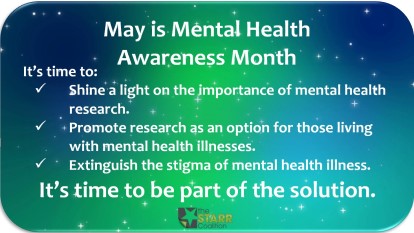
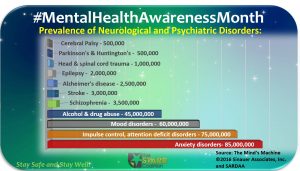
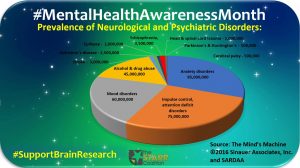
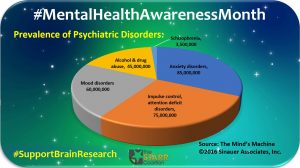
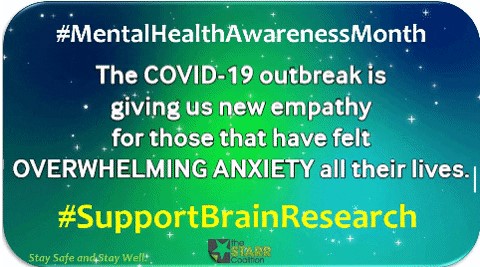
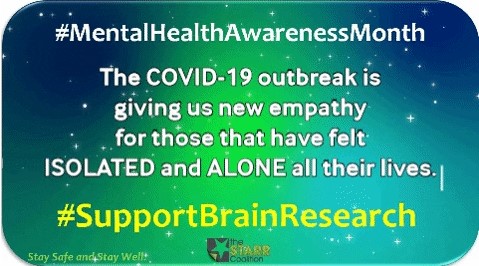
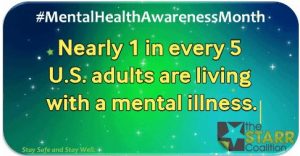
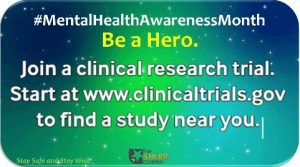
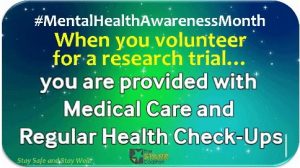
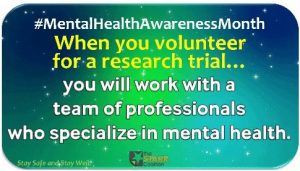
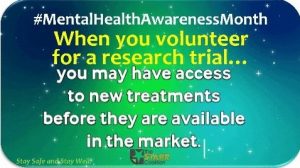
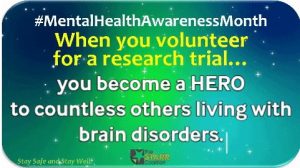
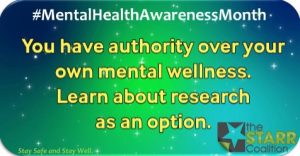
Without Research, there will never be a cure. #SupportMentalHealthResearch #MentalHealthAwareness
Mental health research and the resulting treatments have made recovery a reality for many who experience mental illness. But did you know that the average delay between symptom onset and treatment is 11 years? Improving access to mental health care as never been more important. #SupportMentalHealthResearch #MentalHealthAwareness
Be a Hero. Join a clinical research trial. Start at www.clinicaltrials.gov to find a study near you. #SupportMentalHealthResearch #MentalHealthAwareness
Between 2011 and 2030, mental disorders could cost the global economy $16 trillion in lost output. It doesn’t have to. #SupportMentalHealthResearch #MentalHealthAwareness
Nearly 1 out of every 5 adults in the US experiences a mental health issue each year, according to #NAMI. Despite the prevalence of mental health issues, stigma and a variety of other barriers continue to block thousands of people from receiving the mental health care they need #FightStigma #MentalHealthAwareness #SupportMentalHealthResearch
Schizophrenia affects over 300,000 Americans. Over the last decade, drug trials were reduced by 59%. (#yourCompany) along with @TheSTARR support more cutting-edge, scientific research to ensure we have new options for generations to come! #SupportBrainHealth #MentalHealthAwarenessMonth #SupportMentalHealthResearch
Do you believe that we will ever find a cure for schizophrenia? Should that be our goal? #SupportBrainHealth #MentalHealthAwarenessMonth #SupportMentalHealthResearch
The 1990’s were called The Decade of the Brain. Since then, schizophrenia drug trials have dwindled by 88%. Let’s work to make the 2020’s the NEW Decade of the Brain! #SupportMentalHealthResearch #MentalHealthAwareness
You have authority over your own mental wellness. Learn about research as an option https://thestarr.org/research/ #SupportMentalHealthResearch #MentalHealthAwareness
The question isn’t WHY is #MentalHealthResearch important. The question is why isn’t it MORE important when more people are impacted by mental health illnesses than Alzheimer’s, Parkinson’s, CP, and epilepsy combined.
When you volunteer for a research trial, you are provided with medical care and regular health check-ups. #SupportMentalHealthResearch #MentalHealthAwareness
The cost to develop a novel medicine is estimated at $2.6 billion (Tufts). The cost of untreated mental illness costs up to $300 billion every year (NAMI). #SupportMentalHealthResearch #MentalHealthAwareness
$2.6 billion: cost to develop a new drug. 7%: trial medications approved by the FDA. 0: new meds without research volunteers. There’s no cure without research. #SupportMentalHealthResearch #MentalHealthAwareness
When you volunteer for a research trial, you will work with a team of professionals who specialize in mental health. #SupportMentalHealthResearch #MentalHealthAwareness
When you volunteer for a research trial, you may have access to medicines before they are available in the market. #SupportMentalHealthResearch #MentalHealthAwareness
When you volunteer for a research trial, you become a HERE to countless others living with brain disorders. #SupportMentalHealthResearch #MentalHealthAwareness
Want to be on the cutting-edge of scientific brain research? Join a study! #SupportMentalHealthResearch #MentalHealthAwareness
Almost HALF of all adolescents is impacted by mental illness. 1 in 5 children 13-18 have a serious mental illness. #MentalHealthAwarenessMonth #SupportMentalHealthResearch
50% of mental illnesses begin by age 14. The only way to find a cure is through research. #SupportBrainResearch #SupportMentalHealthResearch #MentalHealthAwareness
Suicide is the 2nd leading cause of death among 25-34 year olds and the 3rd leading cause of death among 15-24 year olds.
Mental Health is Brain Health. #SupportBrainResearch #SupportMentalHealthResearch #MentalHealthAwareness
Don’t you wish #BrainResearch was viewed the same as cancer research? #SupportMentalHealthResearch #MentalHealthAwareness
The COVID-19 outbreak is giving us new empathy for those that have felt isolated and alone all their lives. #SupportMentalHealthResearch #MentalHealthAwareness
The COVID-19 outbreak is giving us new empathy for those that have felt overwhelming anxiety all their lives. #SupportMentalHealthResearch #MentalHealthAwareness
May is #MentalHealthAwarenessMonth. Here is a fact to be aware of: Antidepressant prescriptions have jumped by 20% in March since the COVID-19 outbreak. #SupportMentalHealthResearch #MentalHealthAwareness
May is #MentalHealthAwarenessMonth. Here is a fact to be aware of: 1 out of 6 people will experience a major depressive episode in their lifetime. #SupportMentalHealthResearch #MentalHealthAwareness
May is #MentalHealthAwarenessMonth. Here is a fact to be aware of: 1 out of 3 people with depression fail to respond to any drug treatments
People living w/ #depression can help shape future treatments & care through #ClinicalTrials and #Research. #SupportMentalHealthResearch, #MentalHealthAwareness
Support #MentalHealth Advocacy organizations that #SupportMentalHealthResearch https://www.dbsalliance.org/education/clinicians/research-studies/ #SupportMentalHealthResearch, #MentalHealthAwareness
Depression affects 6-7% of US pop. That’s why #TheSTARR supports the Depression and Bipolar Support Alliance to bring patient perspectives on current & future depression treatments to FDA and life science companies. https://www.dbsalliance.org/education/clinicians/research-studies/ #SupportMentalHealthResearch, #MentalHealthAwareness
“Hope is not prognostication. It is an orientation of the spirit, an orientation of the heart. It transcends the world that is immediately experienced, and is anchored somewhere beyond its horizons…” – Vaclav Havel Research is #HOPE
What gives you #HOPE for the future of mental health research?
Mental Health should be our focus beyond #31to365! Looking #BeyondMayToEveryday
Links to Advocacy Partners: STARR Advocacy Groups page
For a Crisis or Immediate Help
National Suicide Prevention Lifeline
Available 24 hours a day, seven days a week for those experiencing a mental health crisis.
1 (800) 273-8255 or suicidepreventionlifeline.org/
Español: 1 (888) 628-9454
For the deaf or hard of hearing: Use your preferred relay service or dial 711, then 1 (800) 273-8255.
Crisis Text Line
A trained crisis counselor is available anytime from anywhere in the United States.
Text HOME to 741741 or chat online at www.crisistextline.org/
National Domestic Violence Hotline
For victims and survivors who need help and support.
(800) 799-7233 or (800) 799-7233 for TTY; www.thehotline.org
If you are not able to speak safely, you can chat online or text LOVEIS to 22522.
The Trevor Project
The largest suicide prevention and crisis intervention organization includes a 24/7 mental health hotline.
(866) 488-7386 or www.thetrevorproject.org/get-help/
To join their online community visit www.thetrevorproject.org/visit-trevorspace/
Veterans Crisis Line
Available 24/7 for Veterans in crisis.
(800) 273-8255, press 1, text 838255 or www.veteranscrisisline.net/
Asian Mental Health Collective
Making mental health approachable and accessible to Asian communities.
www.asianmhc.org/
Black Emotional and Mental Health Collective
A collective of advocates and professionals committed to the emotional/mental health and healing of Black communities.
www.beam.community
Therapy for Black Girls
An online space encouraging the mental wellness of Black women and girls.
therapyforblackgirls.com/
Indian Health Service
www.ihs.gov/suicideprevention
We R Native
A comprehensive health resource for Native American youth, by Native youth.
Text “NATIVE” to 97779 or www.wernative.org/
Therapy For Latinx
Connecting the Latinx community with mental health professionals.
www.therapyforlatinx.com/
Trans Lifeline
Provides trans peer support.
(877) 565-8860 or translifeline.org/
Mind-1-1
Mind-1-1 is an online directory with mental health resources.
www.mind11.org/
United Way’s 211
Assistance getting food, paying for housing bills, accessing free childcare, and more.
Dial 211 or www.211.org/
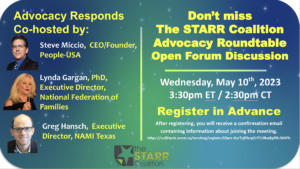
REGISTER HERE for The STARR Coalition Advocacy Roundtable Open Forum Discussion, co-hosted by Steve Miccio, Lynda Gargan, and Greg Hansch.
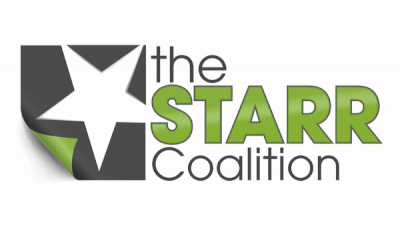
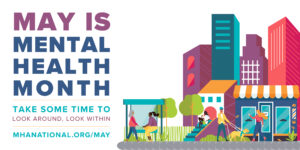 Since 1949, Mental Health America has led the observance of May is Mental Health Month by reaching millions of people through the media, local events and screenings. We welcome other organizations to join us in spreading the word that mental health is something everyone should care about by using the May is Mental Health Month toolkit materials and conducting awareness activities.
Since 1949, Mental Health America has led the observance of May is Mental Health Month by reaching millions of people through the media, local events and screenings. We welcome other organizations to join us in spreading the word that mental health is something everyone should care about by using the May is Mental Health Month toolkit materials and conducting awareness activities.
MHA’s 2023 Mental Health Month campaign is focused on how surroundings impact mental health, and they are calling for individuals to look around, look within.
Topics that MHA specifically addresses include:
MHA has resources to help people understand how these topics impact mental health, provide tips for actions people can take to change their surroundings in favor of their well-being, and suggestions for how to cope if change isn’t realistic.
Check out MHA’s Mental Health Month Toolkit here.
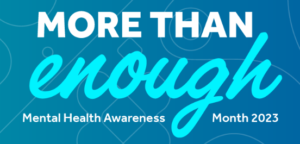 NAMI’s 2023 Mental Health Awareness Month theme is “More that Enough”
NAMI’s 2023 Mental Health Awareness Month theme is “More that Enough”
It’s an opportunity for all of us to come together and remember the inherent value we each hold — no matter our diagnosis, appearance, socioeconomic status, background or ability. We want every person out there to know that if all you did was wake up today, that’s more than enough. No matter what, you are inherently worthy of more than enough life, love and healing. Showing up, just as you are, for yourself and the people around you is more than enough.
Check out NAMI’s MHAM resources HERE.
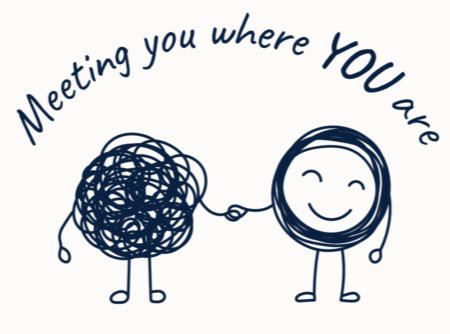
The Depression and Bipolar Support Alliance (DBSA) is celebrating MHAM with the campaign “Meeting You Where You Are.” Whether people need customizable tools to work towards wellness on their own, or resources for reaching out to a support group or mental health professional, DBSA is committed to meeting people where they are on their mental health journey. Check out DBSA’s 2023 Mental Health Awareness Month toolkit.
Together, we can realize our shared vision of a nation where anyone affected by mental illness can get the appropriate support and quality of care to live healthy, fulfilling lives.
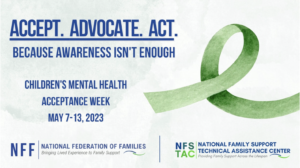
Last year, the National Federation of Families took an important step to advance social justice for families: launching the first national Children’s Mental Health Acceptance Week.
As an organization focused on families with children who experience mental health and/or substance use across the lifespan, we believe acceptance more directly combats discrimination, prejudice, and subconscious bias. Awareness isn’t enough – but Acceptance demands we advocate and act to change attitudes, behaviors, and systems. Acceptance is social justice.
That’s why our 2023 campaign theme for this year is “Accept. Advocate. Act.” We want our children across the lifespan accepted – and that means systemic change in how children’s mental health is viewed.
This year, Children’s Mental Health Acceptance Week returns for the second year May 7th – 13th, 2023. Join us to Accept, Advocate, and Act for children’s mental health.
Please register HERE for the NFF Webinar: Supporting Family Members with Co-Occurring Diagnoses on May 24 at 1:30pmCST hosted by NFF Central Florida Executive Director, Muriel Jones.
Children’s Mental Health Acceptance Week Video